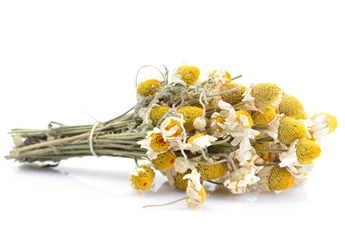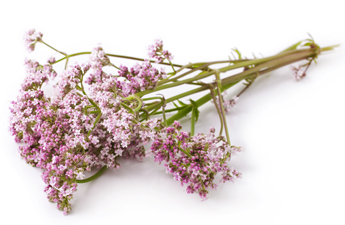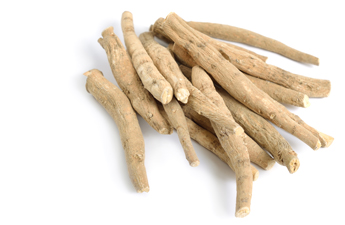Do you want to quit drinking, or reduce your alcohol consumption?
Maybe you just want to have a break, or maybe it’s time for a liver detox. Perhaps your dependance is more deeply rooted, and poses a serious problem in your life. If alcohol consumption has become a regular habit, it can take a toll on many aspects of your life, your health and your wallet as well. Understanding why you choose alcohol is a great start. Research suggests that it is a combination of issues, and surprisingly a large part of it could be an addiction to sugar, so be careful not to replace your booze with soft drinks, and choose happy herbs.
Another common reason that people choose alcohol for their end of day ritual is to switch off and to settle into their relaxation time. This is when herbs can really support you, with so many powerful plant allies that will help you unwind, sleep better, and enjoy your relationships more. From providing alternatives in a social context to helping curb cravings and easing withdrawal symptoms, herbs can lend a hand and offer a healthier option.
When you want something to boost your mood or to help you relax after a hard days’ work, there are many herbal options that can fill that gap that you might be filling with alcohol or other substances.
Read on to explore the many ways that herbs can be of service on your journey towards being alcohol-free!
Alcohol Alternatives
Herbs can help you relax, uplift mood, reduce social inhibitions, connect more deeply from the heart, and offer a delicious, effective and healthy alternative to alcoholic beverages. People also often use alcohol when they are seeking connection, and in the absence of having others to nurture that need, they may turn to alcohol. We find Damiana and Blue Lily particularly useful in this situation.
Damiana (Turnera aphrodisiaca) is a relaxing and mood-enhancing herb that can be drunk as a tea, taken as a tincture or liquid extract (or even smoked if that’s your thing). Famous as an aphrodisiac, it can definitely help you find that happy place! Damiana was traditionally used in Mexico as a hypoglycemic agent to lower blood sugar levels in diabetics, and its diuretic action helps to flush the kidneys of unwanted toxins. Damiana tea is also an excellent replacement for alcohol in social situations, and it has been traditionally used in Brazil to reduce alcohol cravings.
Check out this alcohol-free Damiana Mojito recipe!
Kava (Piper methysticum) is a potent anti-anxiety herb, mood-enhancer, mild sedative, muscle relaxant, hypnotic, mild analgesic, and a local anesthetic to mucous membranes. Kava is safe and non-addictive so it is beneficial to addicts that suffer from anxiety, nervous tension, restlessness, sleeplessness, and depression. Thankfully, Kava is no longer a restricted herb in Australia, which means you can now buy Kava from us – check out our new premium range of single cultivar Noble Kava HERE! Use of Kava with central nervous system depressants such as alcohol, barbiturates or benzodiazepines may increase the risk of drowsiness and motor reflex depression. So, don’t mix it with other substances!
Check out these Kava recipes:
Learn more about Kava, including traditional preparation in our Premium Kava Range blog.
Blue Lily (Nymphaea caerulea) has been revered since ancient Egyptian times as a relaxing, consciousness expanding, heart opening, sensual and pain-relieving herb. It contains apomorphine, a dopamine agonist, and has been found to be effective for opiate and alcohol addiction, as well as erectile dysfunction, Parkinson’s disease and Alzheimer’s. Anecdotal reports of Blue Lily’s effects include relaxation, improved sleep, reduced anxiety, heighten sex drive, elevated mood, euphoria, mild intoxication and increased giggles.
Blue lily can be drunk as a tea, taken as a tincture (just add it to hot water to evaporate off the alcohol), or smoked.
Mucuna (Mucuna pruriens) is an excellent mood enhancer and what makes it so potent is that it is a precursor to dopamine. We could rave all day about this fabulous herb but we are including it here because we have a great product called Vibes and Vibes Extra that can offer a really upbeat experience for socialising, and many of us here at Happy Herbs use this as an alternative to alcohol when going out.
Get inspired with this epic collection of MOCKTAIL RECIPES:

- Schizandra Rhodiola Mocktail
- Sparkling Grapefruit Paloma Mocktail
- Love Bubble Mocktail
- Out of the Blue Mocktail
- Damiana Mojito
- Kava Love Hot Chocolate
- Mellow Mood Milk with Kava, Ashwagandha & Mucuna
- Stress Less Mocktail
Ease withdrawal symptoms & support the nervous system
Passionflower (Passiflora incarnata) and Skullcap (Scutellaria lateriflora) are both sedating herbs that can be drunk as a tea or taken as a tincture. They both are known for their ability to relax and tone the nervous system, relieving tension and anxiety. In Chinese medicine, Skullcap is considered excellent for cooling the mind, liver and lungs. For this reason it promotes a state of meditation and calms an over-active mind. Passionflower induces restful sleep without grogginess the following day. Both of these herbs are used specifically for reducing withdrawal symptoms.
Catnip (Nepeta cataria) and Lemon Balm (Melissa offinialis) are also gentle relaxants that support the nervous and digestive systems. They are also both great choices for colds and flus, as they both can help clear the head and flush out a fever. These herbs have an uplifting quality that can ease depressive moods.
Saint John’s Wort (Hypericum perforatum) and Oatstraw (Avena sativa) are both nerve tonics with an antidepressant action. Oat straw is very nourishing and strengthening for the nervous system. St. John’s Wort helps to restore nerve damage and ease nerve pain, is a wound healer, and is used as an antidepressant; however, avoid it when taking pharmaceutical antidepressants.
Hops (Humulus lupulus) is another sedative herb to relieve anxiety and nervous tension. It can aid sleep as well as digestion. However, it is not recommended for people with marked depression.
Valerian (Valeriana officinalis) is a powerful sedative, antispasmodic and pain reliever. It is used for insomnia, anxiety, tension and stress. It is very helpful for relieving the physical tension & body pain associated with stress (including the stress of withdrawal). It can relax and reduce the pain of muscle cramps, as well as intestinal or menstrual cramps.
Detoxing herbs for the liver & blood
Herbs are also excellent allies when it comes to detoxing. Your liver is the organ most at risk of bearing the burden of alcohol use – and this is one area where herbs excel.
Milk Thistle (Silybum marianum) and Dandelion Root (Taraxacum offinale) are excellent herbs to cleanse and strengthen the liver when recovering from long-term alcohol use.
Burdock Root (Arctium lappa) and Red Clover (Trifolium pratense) are blood cleansers that start the gentle process of cleansing toxins out of your blood and body. Drink plenty of water to assist your body in the detoxification process.
Apple Cider Vinegar is another natural way to stimulate your liver, digestive system and alkalise your body. Mix 1-2 tsp of unpasteurised, organic ACV in 1 cup of water, drink before meals, 3 times daily for best results. If you are doing a detox this July, this is a great drink to include in your regime.
Herbs to overcome cravings
Gymnema (Gymnema sylvestris) is an amazing herb to regulate blood sugar – many people are surprised by how much of their alcohol habit is really a secret sugar addiction!
Passionflower (Passiflora incarnata) has been shown to be effective for assisting withdrawal from many addiction-prone psychotropic drugs, including morphine, nicotine, alcohol, diazepam and cannabis.
Nutrition
The majority of people with an addiction to alcohol are also suffering from low blood sugar (hypoglycemia). To balance blood sugar levels (and therefore reduce alcohol cravings), it is recommended to:
– Avoid all sugars (including corn syrup and fruit juice concentrates)
– Reduce the intake of refined carbohydrates (white bread/pasta)
– Increase the intake of complex carbohydrates (whole grains/fresh veggies)
– Increasing protein, as well as B complex and C vitamins may also be recommended.
Reducing Alcohol Consumption: FAQs.
What happens to your body when you stop drinking, what are the benefits?
You will typically notice improved mood, increased energy, mental clarity and focus, healthier skin, weight less, more restful sleep and better digestion, but it can go so far as improving your relationships, helping you perform better at work, lowering your risk of long-term health issues and of course, save you money! This all depends on the level of your alcohol consumption of course.
Does quitting alcohol really improve mood?
Absolutely – especially when you are substituting alcohol with herbal alternatives! Depending on the triggers of your drinking, this may be daunting: but the longer you are without alcohol, the more benefits you will notice and feel.
Caution:
If you are an alcoholic, quitting is a serious undertaking, and professional assistance is advisable. If you are interested in trying herbs to assist with your addiction recovery, consult your doctor as some herbs may interact and inhibit the effectiveness of other medications you may be taking. Speak to a GP and a professional Herbalist or TCM practitioner for more information on which herbs may best suit your needs.
References:
- David Hoffman (2003), Medical Herbalism,
- Michael Tierra (2008), Planetary Herbology
- Matthew Wood (2008), The Earthwise Herbal
- Ray Thorpe (2000), Happy High Herbs
- Penetar, D. Drug and Alcohol Dependence, published online May 16, 2012.





 Nextwave
Nextwave

